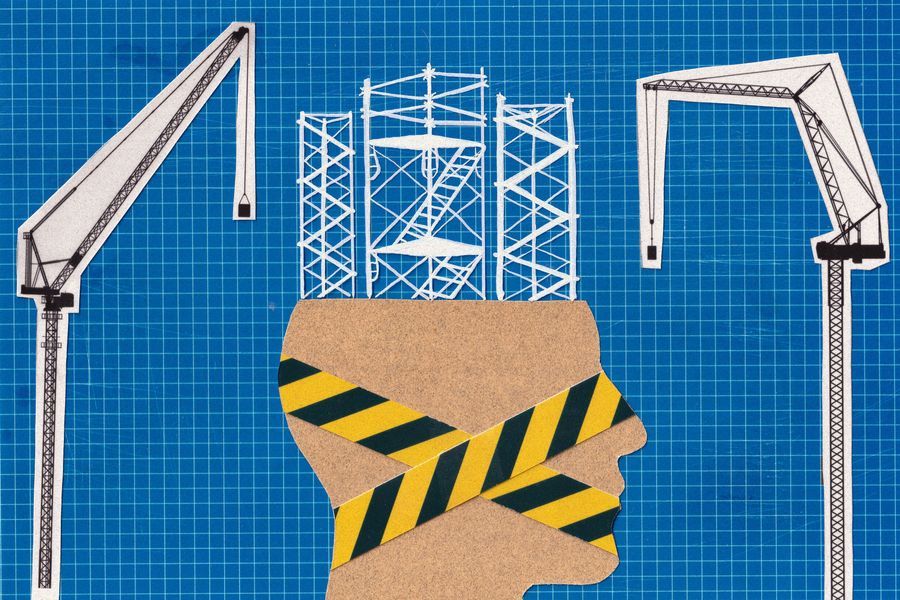WSJ’s Personal Finance team presents a series on how to fix your financial life in 2024. Today: getting your brain up to speed on your money plans.
The human brain isn’t very good with money.
Even when we set out with the best intentions we often end up making the same mistakes. There’s a reason the top three financial New Year’s resolutions for 2024 remain consistent with years past, according to Fidelity Investments surveys: save more, pay down debt and spend less.
Altering our habits and attitudes around money requires a little brain training and putting up some guardrails, behavioral scientists said.
First, acknowledge that having money trouble isn’t a personal shortcoming, said Wendy De La Rosa, a professor at Penn’s Wharton business school.
“Our brains are fundamentally not wired to make the decisions that we’re asking ourselves to make,” she said. “You’re asking a single individual to stand up against a whole host of organizations who are incentivized to get you to part with your money as quickly as possible.”
The way to keep those forces at bay is to reshape your own financial environment, she said.
Simplify your bills
Big payoffs come from making one-time decisions right now that will streamline your finances in the future, said Abigail Sussman, a professor at the University of Chicago Booth School of Business.
One of her recommendations is to reschedule the timing of your recurring bills so that they are all due at the same time of the month, perhaps shortly after a paycheck hits your account. You can often request a new due date from your credit-card company, cable provider and other billers.
This practice reduces the chance of forgetting to make a payment and frees up some of your finite mental bandwidth to handle other things.
In the spirit of simplifying, Sussman also suggests consolidating your money into as few accounts as possible, and using a single credit card rather than chase points and rewards with several.
Set a financial health day
Adjusting your finances takes time. So schedule it.
“When you’re sick, you take a health day. When you need a vacation, you take vacation days,” said De La Rosa, the Wharton professor. “Put on the calendar, two weeks from now, a financial health day.”
Use that day to tackle tasks such as canceling a subscription you don’t use anymore or closing an account that has been hitting you with fees.
If a whole day of financial chores feels overwhelming, take 15 minutes a day to cross one item off your to-do list, said Bari Tessler, a financial therapist, who refers to these sessions as “money dates.”
“Ritualize it, make it creative, sit down, light a candle,” Tessler said. If you feel anxious during these activities, go for a quick walk or find something that will ease the tension. (She likes to have a mocha latte on her money dates.)
Make spending hurt
Upfront fixes have some power to improve your financial life, but making smarter decisions about spending is an ongoing challenge.
It can be too easy to buy a pint of ice cream or a flat-screen TV. Making yourself more aware when money is leaving your wallet helps people spend less, said Scott Rick, an associate professor of marketing at the University of Michigan’s Ross School of Business. He calls these actions “psychological speed bumps” that can protect you from overspending.
One tactic is to clear your saved credit-card information from websites and apps. Having to re-enter the card number, expiration date and security code every time you check out online gives you a moment to think over the purchase.
People might realize, “ ‘Oh yeah, I actually have quite a bit of debt already this month on this card,’ ” Rick said.
Other favors you can do yourself while shopping online are installing an ad blocker so that tempting products don’t follow you around the internet, and designating one day of the week as a time to make all of your purchases. In the preceding days, keep a list of everything you plan to buy so that you can reflect more on what you actually want.
For in-person transactions, you can make spending more painful by asking for a receipt. Getting a physical one makes it easier to register how much you are spending in the moment, Rick said.
Sweeten the small stuff
Restricting yourself from purchases that you enjoy can create unnecessary guilt and lead to more stress.
“You’re not going to become rich by not buying lattes,” Rick said. “Don’t beat yourself up over these little things that might actually be important for your mental well-being.”
See how much money you have left each month, Rick says, after accounting for monthly bills, retirement contributions, emergency savings and coming savings goals. Then the fun part: Spend the majority of the remainder on treats, anything that might make your life easier, or donations to charity.
And just because something is bought on a whim doesn’t mean it is a bad purchase, Rick said. Research also shows that budgeting too far in advance can lead to overspending. That is because the discomfort of limiting your spending with a budget fades over time. It is better to make such commitments closer to the fact.
“This is another place where people need some deprogramming,” Rick said. “There’s so much puritanical shaming of quick decisions to buy.”
Write to Oyin Adedoyin at oyin.adedoyin@wsj.com and Joe Pinsker at joe.pinsker@wsj.com



